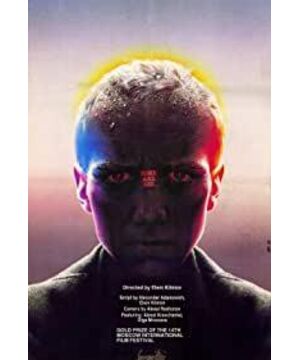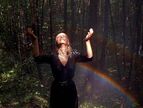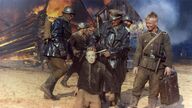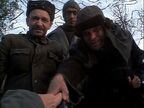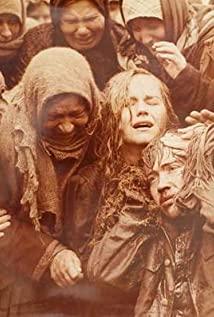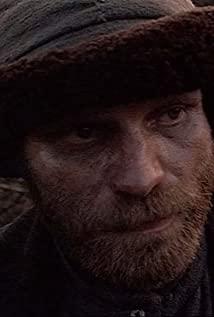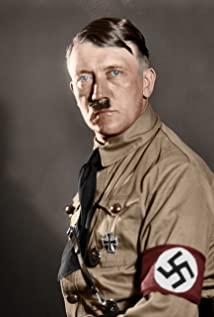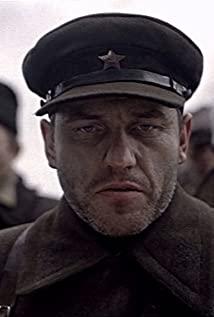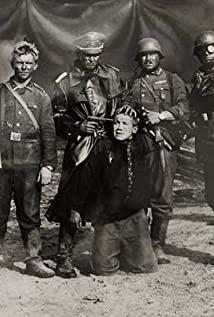——Revelation 6:4
"Go and see for yourself", quoted from the King James Version "Bible". Legend has it that the seven seals were all lifted that year, and a catastrophe fell from the sky, which claimed the lives of countless people in the world. Riding a red horse in a war, millions of floating corpses and bloodshed; the outbreak of World War II soon coincided with what John saw in the book of Revelation.
In fact, the film did not stimulate the vision as expected. What impresses people is the expressive sound. At the beginning of the film, an old man and a child scolded loudly, and the voices of both people were extremely old, suggesting the difficult living environment and living conditions. Then there is the protagonist’s tinnitus after the bomb exploded. The director almost used the sound effects of a horror movie to express the voice in Frieluochka’s ears and the extreme fear in his heart. Finally, there is the intermittent whistle of the heroine, stern and weird, adding to the terror. The film is 136 minutes long, and director Elem Klimov spent nearly 130 minutes to show the tragic experience of Friero Chika. It is almost that whoever lives with the protagonist will be killed by a bullet (even Cows are not immune), wherever they live, the Nazis will be upset by the Nazis. There are many disasters that Frei Rochka has experienced, and he is the only one who survives each time. It is this lonely situation that ultimately deepens the sense of disaster. Nevertheless, it is unceremonious to say that all the images in the first 129 minutes are nothing but depressing, showing the Nazis' indiscriminate killing of innocents and cruel scenes of the war. Very limited.
However, this impression was swept away at the end of the film-the end was so powerful that it almost concealed all the advantages and disadvantages of the previous, which made the film directly rise several levels from mild sensory curiosity and become a deep philosophy. Thinking expression, which also determines its unquestionable spiritual quality.
The focus of the film is all on the last 7 minutes. After numerous catastrophes, the wrinkled and distorted Fryochka shot at Hitler's portrait in the muddy water. With the bullet hitting Hitler's "body", time actually started to go backwards, everything is going backwards: from the bombed building back to its original state, to Hitler's meeting with young activists, to Hitler's inspection of troops, to the beer hall riot... …Frei Rochka's eyes were red, and the killing intent continued to increase, killing all evil, bringing Hitler and his Nazi ruling machine and war machine back to their original form, and time gradually regressed with the death of the evil forces. The "execution" continued, and the protagonist killed Hitler, who had been fierce in his youth, and when Hitler came to the last time, he was wrapped in a swaddling baby and lying in his mother's arms. Rochka stared at the photo for a long time, and could no longer find any reason to shoot, so she had to give up the last chance to kill the source of all evil and eliminate the buds of evil.
This obvious kind and humanitarian spirit is really moving, because even after the protagonist has gone through so many bloody massacres, he can still have compassion and justice in his heart, even in the face of the enemy and the culprit who killed his mother. However, innocence is innocent. Hitler did not have such cruel thoughts in his childhood, and he should not face innocent death. This kind of thinking undoubtedly reveals the great side of human nature. On the one hand, this setting reminds people of the tragic fate of the protagonist himself in the film, and on the other hand, it also stimulates deeper associations and thinking. Humanism is of course kind, but sometimes humble, and it is this kind of compassion that makes history unrestrainedly develop. The moment Frieroczka gave up firing, history began to happen normally according to the time sequence, which implies that all current wars and massacres are still unavoidable; time, or mankind itself, finally indulged Hitler and the Nazis. Lots of crimes. This is both inevitable and paradox, because without Hitler, there will be other Tellers. Without World War II, there will be three wars and four wars; but if time goes back and mankind is allowed to make a choice between peace and war again, mankind will Because he has no hesitation in choosing a person's morality and goodness to "restart", even at the expense of destroying the entire race. Everything is unavoidable. People can only pitifully use the cruel way of fighting the evil to repair those loopholes that should not be repaired. This is a critical reflection on humanitarianism and a fundamental reflection on the meaning of war. A very complex emotional expression that is both pessimistic and optimistic about what is happening in front of me.
The director does not stop at explaining such complex emotions. He further asked us whether the countries, races, and individuals who were victimized by Nazi Germany in World War II were completely innocent? Friero Chika looked at the infant Hitler. The innocence and innocence in the baby's eyes made people unable to believe that decades later, the Axis power led by this man slaughtered tens of millions of people around the world. Where is the problem? Is human nature inherently evil? Obviously it is not that simple. Hitler was not born with evil thoughts, and the hatred he has accumulated against people and countries around him cannot be simply blamed on the individual himself. The outbreak of the Second World War was not an isolated incident, because after the end of the First World War, the Treaty of Versailles transferred all the responsibility for launching the war to Germany, thereby imposing extremely severe economic and military sanctions on Germany. First, it made Germany lose 13% of its land and 12% of its population, and then disarmed the entire country. The army was controlled below 100,000 and it was not allowed to have an air force. Such sanctions are a huge shame for any conscientious citizen and a modern country, let alone a country that has just completed reunification not long ago. As Churchill said in "The Memoirs of World War II", the biggest stupid thing the victorious country did after World War I was to ask Germany to pay huge war reparations in the "Versailles Treaty". "It was harsh and stupid. To an extent that is clearly unachievable". Such a claim for compensation "reflects the anger of the victor, and also reflects the ignorance of the people of the victorious country that, in fact, no defeated country can afford the amount of indemnity equivalent to the cost of modern warfare." In the final analysis, Hitler and the Nazis were derivatives of democratic socialism, and it was not only Hitler who was angered, but also many patriots in Germany at that time. Although this patriotic passion was eventually transformed into a Nazi, and its behavior was indeed extremely brutal, it does not mean that the most wicked person in the whole process was just the Nazi or Hitler.
It is no exaggeration to say that the philosophical and ethical exploration in just six minutes has completely surpassed all war movies in history. Of course, this is not to say that the first 130 minutes of images are all a waste of time. In fact, it was the development of the story that drove Frielochka's mood up, and finally made him undaunted to shoot the first shot in his life. At the end of the film, when we saw the director linking winter and summer in the same forest with a very surreal long lens, we suddenly realized that the war was still going on year after year, and the creatures were still suffering. Things that have happened will continue to happen, and things that haven't happened are already doomed. From this point of view, the outstanding part of the story is that its ending does not try to tell us who the winner is or who is the righteous teacher in the war; on the contrary, only one ending has been written implicitly. Even the war will continue, and death will never end.
View more about Come and See reviews


